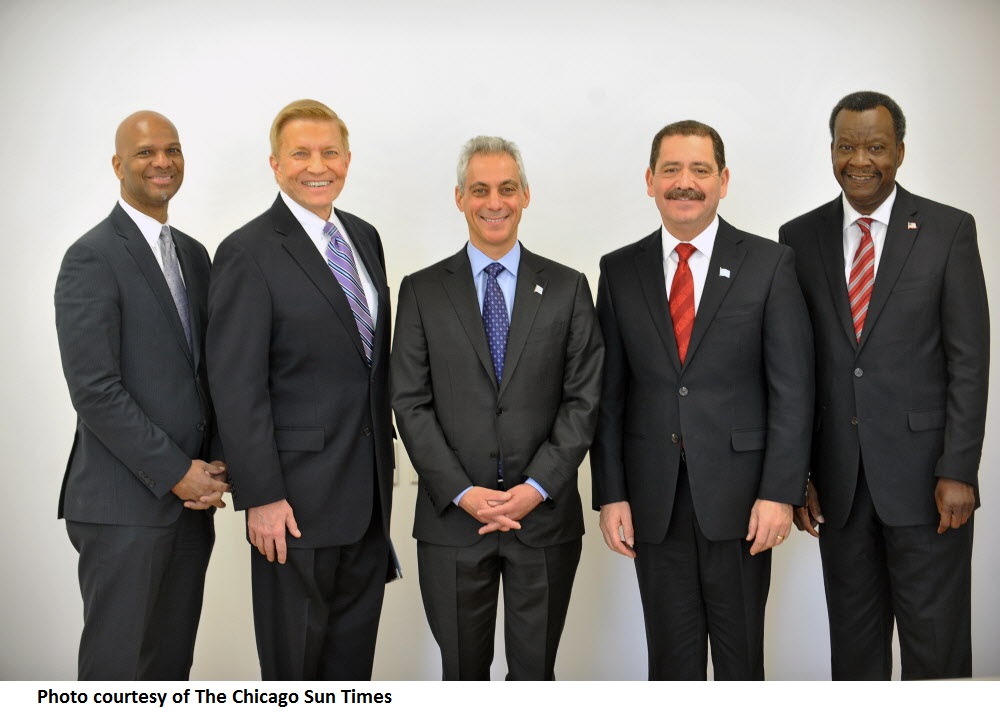Measuring How The Mayoral Candidates Persuaded Voters To The Polls
By Chuck Sudo in News on Feb 24, 2015 9:45PM
Voter turnout for today’s mayoral election, as expected, has been low. Election campaigns are as much about a candidate’s brand as they are about the issues, arguably more so. They’re expensive, exhausting races to persuade voters to the polls and cast ballots. They’re about marketing a candidate and controlling the message.
Obviously, Rahm Emanuel, Chuy Garcia, Bob Fioretti, Willie Wilson and Dock Walls couldn’t coax undecided voters to leave the comfort of home or take time away from work to hit their polling places. But how well did the candidates do in getting supporters to the polls? For that answer, we spoke with Jim Crimmins, a former Chief Strategy Officer and Worldwide Brand Planning Director at advertising firm DDB Chicago and founder of Persuade the Lizard, a website dedicated to rating advertisements based on their ability to persuade. Some of Crimmins’ former accounts include Anheuser-Busch, Frito-Lay, State Farm and McDonald’s so he’s something on an expert on the subject.
Crimmins didn’t have much to work with here since only two candidates could afford to buy television ad time and one of them—Rahm Emanuel—has been peppering the airwaves with commercials since November.
“Rahm’s campaign was smart to base his ads on association,” Crimmins said. “The mayor’s weak point is his personality and producing commercials where residents others touted his accomplishments downplayed that weakness; it associates a vote for Rahm with someone who is personable.” Emanuel’s supporters at the Chicago Forward Super PAC, meanwhile, did a good job painting Garcia as an old school politician. (Even if Chicago Forward distorted the facts to achieve that goal.)
As for how Garcia’s ability to persuade voters, Crimmins found it lacking. “Watching Chuy’s ad, one gets the sense he’s warmer than the mayor,” Crimmins said. “But his appearance before the camera was stilted and his reading from a script was halted.”
Crimmins did find some bright spots from Garcia’s ad. “He has a nice attack point if a runoff election is held in calling Rahm ‘Mayor 1 Percent,’” Crimmins said. “That has broad implications for Emanuel as it goes to his weakness that he’s seen as only supporting corporate interests and isn’t a man of the people.” Crimmins compared the “Mayor 1 Percent” tag with Ronald Reagan’s “morning in America” line and said Garcia’s campaign handlers could use it in advertising in a possible runoff, without it eating into Garcia’s budget
Willie Wilson’s radio spots have done a good job persuading his target voting bloc of black ministers and their flocks, Crimmins said, “but he hasn’t positioned himself as a serious candidate across a wide audience.” Bob Fioretti’s problems mostly stem from a lack of money. Still, “his team hasn’t done a good job explaining to voters why they should be ‘ready for Fioretti.’”
